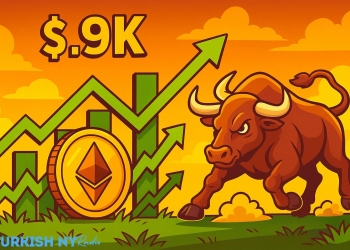A bear market is a term used in the financial world to describe the market condition when the stock market values decline over a prolonged period. Bear markets are characterized by an overall pessimistic mood a general feeling of panic and chaos and a decrease in the level of confidence. In a bear market the value of securities and other investments tends to depreciate as investors start selling their stocks and equities. This can lead to a chain reaction where more and more investors start to sell thereby driving down the prices further.
The impact of a bearmarket can be significant and far-reaching, affecting not just the stock market but also the broader economy. Investors tend to become more cautious and risk-averse in a bear market which can lead to a decrease in consumer spending and business investment. This in turn can lead to a slowdown in economic growth and job losses.
A bear market can also have specific consequences for individual investors. Those who have invested heavily in stocks and equity-based investments are likely to see a significant reduction in the value of their portfolio. This can be particularly devastating for those who rely on their investments for retirement income.
In conclusion a bear market triggers widespread panic and chaos in the financial world. The impact of a bear market can be felt not just by investors but also by the broader economy. Understanding the implications of a bear market is essential for investors to make informed investment decisions and where possible take measures to protect their portfolios.
Is It Good To Buy In A Bear Market?
In a bearmarket the price of stocks and other assets typically falls causing investors to sell their investments and pull back on buying new ones. This can create an opportunity for investors who are looking to buy low and sell high. However it’s important to remember that timing the market is risky and difficult. Buying in a bear market can be a wise decision only if you have a long-term investment horizon and a solid investment strategy.
If you’ve done your research and believe in the long-term potential growth of the assets you’re interested in buying in a bear market, it is a good opportunity to acquire assets at a discounted price. It’s important to approach bear markets with caution however as they can be a sign of wider economic problems that could result in long-term challenges for investors.
Ultimately the decision to buy in a bear market should be made based on individual investment goals risk tolerance and financial situation. If you’re willing to take on more risk in exchange for the potential for higher returns buying in a bear market could be a good choice. Just be sure to do your research and remain patient as markets often take time to recover from downturns.
What Happens When You Enter A Bear Market?
Entering a bear market can be a daunting experience for any investor. It is characterized by a sustained and significant downturn in the stock market which can result in substantial losses for those who have invested in stocks. The economy may also be affected as companies struggle to make profits and unemployment rates rise. Stock prices can fall by more than 20% and it can last for months even years.
The stock market is driven by many factors such as economic conditions geopolitical events and investor sentiment. A bear market can be triggered by a range of events including a recession high inflation rates or interest rates and political instability. As the market falls many investors may panic and sell their stocks which can further drive down prices.
However not all is lost during a bear market. Investors who remain calm and strategically adjust their investment portfolios can make profits during the downturn. This can include diversifying their portfolio investing in sectors that resist cyclical trends and investing in defensive lower-risk stocks.
In conclusion entering a bear market can be a challenging and nerve-wracking experience for investors but it is important to remain level-headed and make informed decisions. By strategic investing and diversified portfolios, investors can navigate the downturn and come out on the other side with a stronger investment plan.
Does Bear Market Mean You Should Buy Or Sell?
The bear market is often viewed as a sign to sell but it could also be an opportunity to buy. It is a time when prices of securities are falling and investors panic leading to a further drop in prices. However it’s important to keep in mind that prices won’t keep falling forever. Eventually the market will rebound and prices will rise again. This offers an opportunity to buy securities at a lower price.
Investors should focus on the fundamentals of the securities they want to purchase rather than their short-term price fluctuations. If the company has a good track record and there are positive indications for its growth in the future it could be a good buy even in a bear market.
However investors should also be cautious as not all companies perform well in a bear market. It’s important to do thorough research and consider the overall state of the market and the economy.
In conclusion the bearmarket doesn’t necessarily mean that you should sell all your securities. If you have the patience and strategy to make informed decisions it could be a great opportunity to buy quality stocks at lower prices.






























































































![BitTorrent [New]](https://s2.coinmarketcap.com/static/img/coins/64x64/16086.png)















